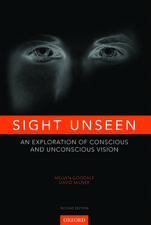Neurosociology: The Nexus Between Neuroscience and Social Psychology
Autor David D. Franksen Limba Engleză Paperback – 5 sep 2014
| Toate formatele și edițiile | Preț | Express |
|---|---|---|
| Paperback (2) | 463.68 lei 6-8 săpt. | |
| SPRINGER NETHERLANDS – 19 feb 2019 | 463.68 lei 6-8 săpt. | |
| Springer – 5 sep 2014 | 637.28 lei 6-8 săpt. | |
| Hardback (1) | 641.71 lei 6-8 săpt. | |
| Springer – 9 apr 2010 | 641.71 lei 6-8 săpt. |
Preț: 637.28 lei
Preț vechi: 749.73 lei
-15% Nou
Puncte Express: 956
Preț estimativ în valută:
121.98€ • 132.54$ • 102.53£
121.98€ • 132.54$ • 102.53£
Carte tipărită la comandă
Livrare economică 21 aprilie-05 mai
Preluare comenzi: 021 569.72.76
Specificații
ISBN-13: 9781489982728
ISBN-10: 1489982728
Pagini: 232
Ilustrații: XIII, 216 p.
Dimensiuni: 155 x 235 x 12 mm
Greutate: 0.33 kg
Ediția:2010
Editura: Springer
Colecția Springer
Locul publicării:New York, NY, United States
ISBN-10: 1489982728
Pagini: 232
Ilustrații: XIII, 216 p.
Dimensiuni: 155 x 235 x 12 mm
Greutate: 0.33 kg
Ediția:2010
Editura: Springer
Colecția Springer
Locul publicării:New York, NY, United States
Public țintă
ResearchCuprins
The Evolution of the Human Brain.- What Is Social About the Human Brain?.- The New Unconscious: Agency and Awareness.- Mirror Neurons: A Return to Pragmatism and Implications for an Embodied Intersubjectivity.- The Neuroscience of Emotion and Its Relation to Cognition.- The Self in Neuroscience and Social Psychology.- Consciousness, Quale, and Subjective Experience.- The Place of Imitation in Social Life and Its Anatomical Brain Supports.- Determinism and Free Will.- Conclusion.
Recenzii
From the reviews:
“The intent of this book is to break down ‘the walls between sociology and neuroscience to the benefit of both’ … . clearly intended for sociological social psychologists. … How successful was this book in achieving the relevant depth and comprehensiveness of the issue raised above? Very successful in both respects. … this book clearly identifies and explains the pivotal issues in this literature. … the author has done an excellent as well as timely job in drawing out these implications.” (Paul Tibbetts, The Quarterly Review of Biology, Vol. 86 (3), September, 2011)
“The intent of this book is to break down ‘the walls between sociology and neuroscience to the benefit of both’ … . clearly intended for sociological social psychologists. … How successful was this book in achieving the relevant depth and comprehensiveness of the issue raised above? Very successful in both respects. … this book clearly identifies and explains the pivotal issues in this literature. … the author has done an excellent as well as timely job in drawing out these implications.” (Paul Tibbetts, The Quarterly Review of Biology, Vol. 86 (3), September, 2011)
Textul de pe ultima copertă
Recently, neuroscientists have presented new research which has a direct impact on many areas of Social Psychology. In this innovative volume, the author explores the nexus of Social Psychology and Neuroscience with relation to:
-The Human "Self"
-The Social Nature of the Mind
-Socialization and Language Acquisition
-Role-Taking/Theory of Mind
-Consciousness
-Intersubjectivity
-Balanced Social Constructionism
-Human Agency
-The Effect of Emotion on Rational Decision-Making
This groundbreaking work integrates areas of George Herbert Mead's social behaviorism with current neuroscience. The chapters in this volume demonstrate how current work on mirror neurons supports the basic tenets of the American pragmatists' focus on the priority of motor behavior.
-The Human "Self"
-The Social Nature of the Mind
-Socialization and Language Acquisition
-Role-Taking/Theory of Mind
-Consciousness
-Intersubjectivity
-Balanced Social Constructionism
-Human Agency
-The Effect of Emotion on Rational Decision-Making
This groundbreaking work integrates areas of George Herbert Mead's social behaviorism with current neuroscience. The chapters in this volume demonstrate how current work on mirror neurons supports the basic tenets of the American pragmatists' focus on the priority of motor behavior.
Caracteristici
The first book to approach sociology and neuroscience Describes for a sociological audience what neuroscience can add to their research - especially social psychologists David Franks is one of the first sociologists to research and publish on this new field of study Includes supplementary material: sn.pub/extras
Notă biografică
Professor David D. Franks is a Professor of Sociology, who in 1972 received a large Grant from NIE to study the different effects of "open" and traditional Kansas City high schools on self-esteem and the development of personal autonomy. The 1972 grant was the largest unsolicited grant in the country that year. He was also granted tenure and promoted at that time. He served as chair of the faculty grievance committee and as president of the Faculty Senate. In the summer of 1977 he accepted a position as chair of the department at VCU. In the early 80s, after writing on the usefulness of symbolic interaction in studying a social systems understanding of rape and partner abuse, he worked to develop a new sub-specialty in the Sociology of Emotions. This involved writing articles arguing for the social nature of something that had hithertofor been viewed as exclusively psychological. To this end he was also involved in editing guest issues of journals and an annual hard-back series, Social Perspectives on emotions, as well as several other volumes demonstrating the utility of the sub-field. He was also on numerous steering committees and chaired offices in the early days of the subsection. In the early 80s and early 90s he was vice president of the symbolic interaction national society. He has presented papers at national meetings with Dr. Lyng of this department on the importance of keeping a coherent idea of objectivity in our approaches to the social construction of reality and applying sociology to real world problems. Dr. Franks retired and was appointed Professor Emeritus in 2001. In 2015, Franks received The Life-Time Achievement Award from the American Sociological Association’s Section on the Sociology of Emotions.














